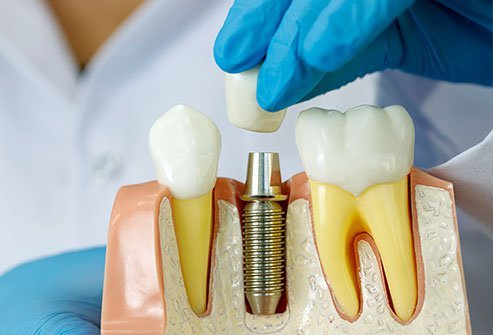
Understanding Dental Implant Procedures:
Dental implant procedures have revolutionized the field of dentistry, offering a long-lasting solution for individuals seeking to restore their smiles. Whether you’ve lost a tooth due to injury, decay, or other reasons, dental implants provide a stable and natural-looking replacement.
Initial Consultation and Assessment:
The journey begins with an initial consultation where the dentist evaluates your oral health and determines your eligibility for dental implants. This involves a thorough examination of your teeth, gums, and jawbone. X-rays may be taken to assess bone density and identify the optimal implant placement.
Surgical Placement of Implants:
Once deemed a suitable candidate, the next step involves the surgical placement of dental implants. This procedure is typically performed under local anesthesia. The dentist carefully places the implant into the jawbone, providing a strong foundation for the artificial tooth. Over time, the implant fuses with the bone through a process called osseointegration.
Healing Period and Temporary Prosthesis:
Following the implant placement, a healing period is necessary to allow osseointegration to take place. During this time, a temporary prosthesis may be provided for aesthetic and functional purposes. It’s essential to follow post-surgery care instructions and attend follow-up appointments to monitor the healing process.
Customized Restoration Planning:
Once the implant has fully integrated with the jawbone, the dentist begins the process of designing a customized restoration. This involves taking impressions and creating a prosthetic tooth or crown that matches the color, shape, and size of the surrounding natural teeth. The goal is to achieve a seamless and natural-looking result.
Implant Restoration Placement:
With the customized restoration ready, the dentist proceeds to attach it to the implant. This step completes the dental implant procedure, providing a functional and aesthetically pleasing replacement for the missing tooth. The restored tooth is securely anchored to the implant, ensuring stability and durability.
Post-Placement Care and Maintenance:
Maintaining good oral hygiene is crucial for the long-term success of dental implants. Regular brushing, flossing, and dental check-ups are essential to prevent complications and ensure the overall health of the implant. Your dentist may provide specific care instructions tailored to your implant and restoration type.
Benefits of Dental Implants:
Dental implant procedures offer numerous benefits beyond just restoring a missing tooth. They provide stability, prevent bone loss, and contribute to improved oral health. Unlike traditional bridges or dentures, implants don’t rely on adjacent teeth for support, preserving the integrity of surrounding natural teeth.
Considerations for Candidacy:
While dental implants are a highly effective solution, not everyone is an ideal candidate. Factors such as overall health, bone density, and lifestyle habits are considered during the assessment. Your dentist will discuss these considerations with you and explore alternative options if necessary.
To learn more about the transformative potential of dental implant procedures and explore whether they are the right solution for you, visit Dental Implant Procedures. Reclaim your confident smile and enjoy the numerous benefits that dental implants can offer.